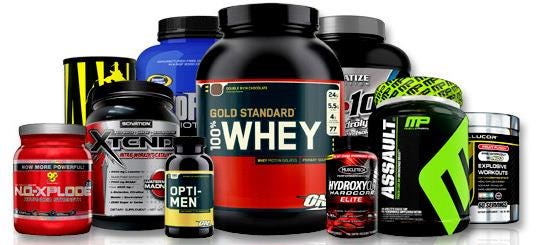
Walk into any GNC with an open mind and a dream of building muscle and be prepared to shell out $200 on some supplements that probably won’t do much. Supplements are a polarizing subject; some believe they are worthless while others think they’ll change your life. As usual, the true answer lies somewhere in the middle. Many supplements are indeed worthless but some have legitimate research proving their efficacy. It’s a billion dollar industry for a reason, you can only fool consumers so much nowadays.
So what should you take? There can’t be one supplement that works for everyone right? Well, to a certain extent there is. That supplement is creatine monohydrate.
I know I know, not a sexy answer. But oftentimes the most basic practice is the most effective. It wasn’t until I became CSCS certified and learned about the body’s energy systems that I truly appreciated the role creatine plays. Most of us know one of the major functions of creatine: pulling water into the muscle cell making it hydrated and anabolic. Pretty obvious benefit there. But to understand the other half of the equation we need a brief understanding of bioenergetics.
The body has three main energy systems; the creatine phosphate system, glycolytic system (which can be further broken down into fast and slow glycolysis), and the beta oxidative energy system. The energy system you use for exercise is primarily dependent on the intensity and secondarily dependent on the duration. High intensity short duration activities (lifting, sprinting) deplete your creatine phosphate energy system. During these activities, Adenosine Triphosphate (ATP) becomes Adenosine Diphosphate (ADP) via a process called hydrolysis.
In order to become useful for energy production, ADP has to become ATP once again. This is where creatine comes into play. Creatine phosphate, which is stored in muscle, loans a phosphate molecule to ADP so it can become ATP once again. You can see why supplementing with creatine, and thus increasing muscle creatine content can be very useful. The creatine phosphate system is both rapidly depleted and rapidly regenerated.
Creatine supplementation makes sense for anaerobic athletes like football players or powerlifters, but what about aerobic athletes? How could a marathon runner benefit from creatine if their training intensity is low and long in duration? You have to consider one simple principle of bioenergetics. You are never using just one energy system, you are always using all three. A marathon runner is PRIMARILY using their beta oxidative energy system, but it is not as if they are using 0% of their creatine phosphate or glycolytic systems. So while creatine may not help them to the degree it would an olympic sprinter, it still serves a purpose.
A few notes on creatine to conclude:
- Creatine monohydrate is still considered the most effective form. The good news is that this version is very inexpensive.
- There is no need to load creatine, you will eventually saturate your muscles by taking 3–5g per day.
- If you experience bloating, you are likely taking too much or not drinking enough water.
